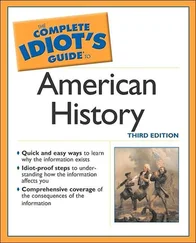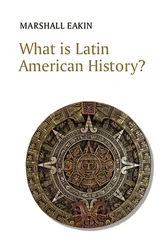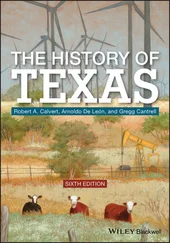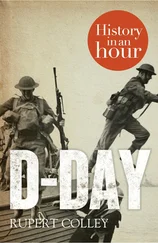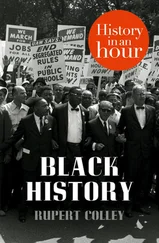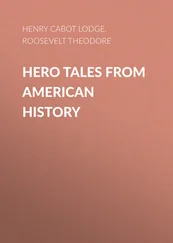Robert Mackenzie - America. A history
Здесь есть возможность читать онлайн «Robert Mackenzie - America. A history» — ознакомительный отрывок электронной книги совершенно бесплатно, а после прочтения отрывка купить полную версию. В некоторых случаях можно слушать аудио, скачать через торрент в формате fb2 и присутствует краткое содержание. Жанр: foreign_language, foreign_prose, на английском языке. Описание произведения, (предисловие) а так же отзывы посетителей доступны на портале библиотеки ЛибКат.
- Название:America. A history
- Автор:
- Жанр:
- Год:неизвестен
- ISBN:нет данных
- Рейтинг книги:4 / 5. Голосов: 1
-
Избранное:Добавить в избранное
- Отзывы:
-
Ваша оценка:
- 80
- 1
- 2
- 3
- 4
- 5
America. A history: краткое содержание, описание и аннотация
Предлагаем к чтению аннотацию, описание, краткое содержание или предисловие (зависит от того, что написал сам автор книги «America. A history»). Если вы не нашли необходимую информацию о книге — напишите в комментариях, мы постараемся отыскать её.
America. A history — читать онлайн ознакомительный отрывок
Ниже представлен текст книги, разбитый по страницам. Система сохранения места последней прочитанной страницы, позволяет с удобством читать онлайн бесплатно книгу «America. A history», без необходимости каждый раз заново искать на чём Вы остановились. Поставьте закладку, и сможете в любой момент перейти на страницу, на которой закончили чтение.
Интервал:
Закладка:
But as this unhappy century draws towards its close, the elements of a most benign change are plainly seen at work. The Bible has been largely read. The Bible is the book of all ages and of all circumstances. But never, surely, since its first gift to man was it more needful to any age than to that which now welcomed its restoration with wonder and delight. It took deep hold on the minds of men. It exercised a silent influence which gradually changed the aspect of society. The narrative portions of Scripture were especially acceptable to the untutored intellect of that time; and thus the Old Testament was preferred to the New. This preference led to some mistakes. Rules which had been given to an ancient Asiatic people were applied in circumstances for which they were never intended or fitted. It is easy to smile at these mistakes. But it is impossible to over-estimate the social and political good which we now enjoy as a result of this incessant reading of the Bible by the people of the sixteenth century.
In nearly all European countries the King claimed to regulate the religious belief of his subjects. Even in England that power was still claimed. The people were beginning to suspect that they were entitled to think for themselves – a suspicion which grew into an indignant certainty, and widened and deepened till it swept from the throne the unhappy House of Stuart.
A little way into the seventeenth century America became the refuge of those who would not receive their faith at the bidding of the King. The best part of American colonization resulted from the foolish and insolent oppressions of Europe. At the beginning, however, it was not so. It was from an impulse of vagrant blackguardism that the first American colony sprang.
CHAPTER III
VIRGINIA
Sir Walter Raleigh spent a large fortune in attempting to colonize Virginia. He succeeded in directing the attention of his countrymen to the region which had kindled his own enthusiasm, but his colonies never prospered. Sometimes the colonists returned home disgusted by the hardships of the wilderness. Once they were massacred by the Indians. When help came from England the infant settlement was in ruins. The bones of unburied men lay about the fields; wild deer strayed among the untenanted houses. Once a colony wholly disappeared. To this day its fate is unknown.
Sir Walter was enduring his long captivity in the Tower, writing his “History of the World,” and moaning piteously over the havoc which prison-damps wrought upon his handsome frame. The time had now come, and his labours were about to bear fruit. The history of Virginia was about to open. It opened with meagre promise. 1606 A.D. A charter from the King established a Company whose function was to colonize – whose privilege was to trade. The Company sent out an expedition which sailed in three small vessels. It consisted of one hundred and five men. Of these one-half were gentlemen of broken fortune; some were tradesmen; others were footmen. Only a very few were farmers, or mechanics, or persons in any way fitted for the life they sought. Morally the aspect of the expedition was even more discouraging. “An hundred dissolute persons” were on board the ships. The respectable portions of the expedition must have gone into very little room.
But, happily for Virginia, there sailed with these reprobate founders of a new empire a man whom Providence had highly gifted with fitness to govern his fellow-men. His name was John Smith. No writer of romance would have given his hero this name; but, in spite of his name, the man was truly heroic. He was still under thirty, a strong-limbed, deep-chested, massively-built man. From boyhood he had been a soldier – roaming over the world in search of adventures, wherever hard blows were being exchanged. He was mighty in single combat. Once, while opposing armies looked on, he vanquished three Turks, and, like David, cut off their heads, and bore them to his tent. Returning to England when the passion for colonizing was at its height, he caught at once the prevailing impulse. He joined the Virginian expedition; ultimately he became its chief. His fitness was so manifest, that no reluctance on his own part, no jealousies on that of his companions, could bar him from the highest place. Men became Kings of old by the same process which now made Smith a chief.
The “dissolute persons” sailed in their ships up the James river. Landing there, they proceeded to construct a little town, which they named Jamestown, in honour of the King. This was the first colony which struck its roots in American soil. The colonists were charmed with the climate and with the luxuriant beauty of the wilderness on whose confines they had settled. But as yet it was only a wilderness. The forest had to be cleared that food might be grown. The exiled gentlemen laboured manfully, but under grievous discouragements. “The axes so oft blistered their tender fingers, that many times every third blow had a loud oath to drown the echo.” Smith was a man upon whose soul there lay a becoming reverence for sacred things. He devised how to have every man’s oaths numbered; “and at night, for every oath, to have a can of water poured down his sleeve.” Under this treatment the evil assuaged.
The emigrants had landed in early spring. Summer came with its burning heat; supplies of food ran low. “Had we been as free from all sins as from gluttony and drunkenness,” Smith wrote, “we might have been canonized as saints.” The colonists sickened and died. From those poor blistered fingers dropped for ever the unaccustomed axe. Before autumn every second man had died. But the hot Virginian sun, which proved so deadly to the settlers, ripened the wheat they had sowed in the spring, and freed the survivors from the pressure of want. Winter brought them a healthier temperature and abundant supplies of wild-fowl and game.
When the welfare of the colony was in some measure secured, Smith set forth with a few companions to explore the interior of the country. He and his followers were captured by the Indians, and the followers were summarily butchered. Smith’s composure did not fail him in the worst extremity. He produced his pocket-compass, and interested the savages by explaining its properties. He wrote a letter in their sight – to their infinite wonder. They spared him, and made a show of him in all the settlements round about. He was to them an unfathomable mystery. He was plainly superhuman. Whether his power would bring to them good or evil, they were not able to determine. After much hesitation they chose the course which prudence seem to counsel. They resolved to extinguish powers so formidable, regarding whose use they could obtain no guarantee. Smith was bound and stretched upon the earth, his head resting upon a great stone. The mighty club was uplifted to dash out his brains. But Smith was a man who won golden opinions of all. The Indian chief had a daughter, Pocahontas, a child of ten or twelve years. She could not bear to see the pleasing Englishman destroyed. As Smith lay waiting the fatal stroke, she caught him in her arms and interposed herself between him and the club. Her intercession prevailed, and Smith was set free.
Five years later, “an honest and discreet” young Englishman called John Rolfe loved this young Indian girl. He had a sore mental struggle about uniting himself with “one of barbarous breeding and of a cursed race.” But love triumphed. He laboured for her conversion, and had the happiness of seeing her baptized in the little church of Jamestown. Then he married her. After a time he took her home to England. Her appearance was pleasing; her mind was acute; her piety was sincere; her manners bore picturesque evidence of her forest upbringing. The English King and Court regarded her with lively interest as the first-fruits of the wilderness. Great hopes were founded on this union of the two races. She is the brightest picture – this young Virginian wife and mother – which the history of the doomed native races presents to us. But she did not live to revisit her native land. Death parted her very early from her husband and her child.
Читать дальшеИнтервал:
Закладка:
Похожие книги на «America. A history»
Представляем Вашему вниманию похожие книги на «America. A history» списком для выбора. Мы отобрали схожую по названию и смыслу литературу в надежде предоставить читателям больше вариантов отыскать новые, интересные, ещё непрочитанные произведения.
Обсуждение, отзывы о книге «America. A history» и просто собственные мнения читателей. Оставьте ваши комментарии, напишите, что Вы думаете о произведении, его смысле или главных героях. Укажите что конкретно понравилось, а что нет, и почему Вы так считаете.


